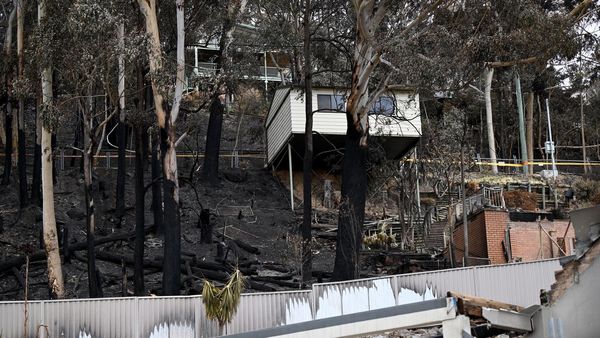
Leon Zwier’s daily routine in Jerusalem this week has been night and day.
The Melbourne lawyer visited Israel for a conference days before conflict broke out between Israel and Iran last week, with the longstanding adversaries trading airstrikes.
Zwier is due to leave on Friday but with planes grounded across Israel, his chances of returning to Australia as planned appear slim.
Almost 2,000 stranded Australians are trying to escape from the conflict zones as airports and local embassies close down amid the fighting.
As of Wednesday morning, 872 Australians have registered with the Department of Foreign Affairs and Trade (Dfat) for assistance to leave Iran, while 1,027 in Israel have done the same.
Their options remain few and far between. Some Australian passport holders have been advised to leave Israel via the land border with Jordan. The 2.5-hour journey by car is risky and marred by intermittent airspace closures in Jordan due to the threat posed to commercial planes.
A spokesperson for the foreign affairs minister, Penny Wong, says the “safety of Australians is our priority”, adding Dfat is working on a plan for assisted departures “via land and air when it is safe to do so”.
Wong told Sky News on Wednesday she and others were concerned about “regional escalation” in the Middle East and urged Iran to “come to the table”.
But until that happens, Australians such as Zwier remain in a precarious situation.
The bombs on Jerusalem have been falling after dark, so he uses his early mornings to escape the security of his hotel and walk the city’s muted streets.
“Every day I get up … I go for a walk to the market, and it reminds me very much like Covid because it’s only the shopkeepers that are open,” Zwier tells Guardian Australia.
On his walks, Zwier buys nuts, orange juice, fresh bread and coffee, while socialising and taking selfies with the shop owners.
By nightfall, the streets of Jerusalem are a different story, however.
“At night, that’s when the risk emerges,” he says. “We’re far more cautious than during the day.
“The attacks [from Iranian missiles] are obviously directed into a civilian population and not at military targets, which means that everyone’s wary of the risk.”
Israeli airstrikes have killed at least 224 people and injured more than 1,400 since Friday’s surprise attack on Tehran, Iran’s health ministry says.
In Israel, the death toll after four days was 24, with about 600 injured.
The Israel Defence Forces says Iran had used 370 missiles in eight attacks out of a US-estimated arsenal of 3,000 ballistic missiles. The IDF further claims to have destroyed 200 of Iran’s missile launchers – half the total.
Despite the ferocity of the conflict, Zwier says he feels “no risk at all” because he follows the protocols, listens to the warnings and heads to the bunkers when the sirens sound.
Inside the bunkers, there is a “very unusual atmosphere”, Zwier says. “We talk to complete strangers, and they talk to us, and you have this sort of bond from being together in the bunker.
“Everyone in Israel understands this is a heavy price you pay when you have a Hitler-like bad rogue state actor who wants to annihilate the Jewish state.
“There’s a sense of cautious optimism in Israel.”
‘It’s never felt so direct’
Across Israel, a 30-minute drive from Tel Aviv, Jewish Australian Emily Gian lives with her Israeli husband and three kids near the international airport.
She describes the past few days as “really intense” and “nothing like anything we’ve experienced” since the family’s move to Israel in July 2023.
“I even asked my husband and his mum the other day, ‘Is this the worst that things have ever been? Is this the scariest the situation’s ever been?’” she says.
“They said that this is definitely like the scariest or the most scared they’ve ever felt.
“It’s never felt so direct … it’s just the random nature of it all as well, that last night [an airstrike] was there, and tonight it could be us.”
Gian says the situation feels a bit like the Covid lockdown. The streets are largely empty and her children – all under 12 – are attending school classes via Zoom.
Shopping trips are also brief in case the sirens warn of an imminent attack – a signal to get to a bunker immediately.
Despite the risks, Gian says moving back to Australia is not an option they are considering.
“Our whole lives are here, so it’d just be very hard to pack up and go [back to Australia] again.
“There’s no flights out – and we’re not going anyway – but certainly for us, it wouldn’t be an option to get dropped at the border at Jordan. So I’d prefer to stay.”







